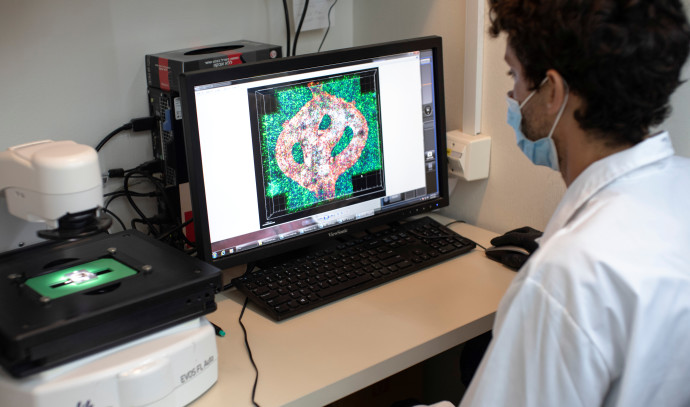Hardly anyone thinks about breast cancer in men. Few are aware of it, and the male malignant tumor represents about 0.5%-1% of all breast-cancer cases. The molecular characterization of male breast cancer has received limited attention in research, mostly due to its low incidence rate.
But suddenly, Israelis have started to talk a lot about it. Keshet TV has a fictional drama about a male politician seeking high office, whose breast cancer makes him fear it will derail his career, and his female hospital cancer surgeon, who also tries to hide her breast cancer, falling in love.
Male breast cancer has distinct alterations in the tumor genome that may suggest potential treatment targets, according to a study by researchers at New York City’s Weill Cornell Medical School. They have conducted the first whole-genome sequencing analysis of male breast cancer, which looked at the complete DNA landscape of tumor samples from 10 patients.
A unique, yet possibly fatal occurrence in men
This is an important step in viewing breast cancer in men, which is rare as a unique disease. Though most research has focused on women with breast cancer, the incidence in men has increased at a much faster rate than in women over the last 40 years. Also, most men are unaware of their risk, so they tend to be diagnosed at more advanced stages and have poorer treatment outcomes.
The study, just published in the journal Modern Pathology under the title “Whole-Genome Sequencing Analysis of Male Breast Cancer Unveils Novel Structural Events and Potential Therapeutic Targets,” uncovered gene mutations and molecular profiles that could impact the cancer’s diagnosis and treatment in men.
They said to the best of their knowledge, their study represented the first whole-genome analysis of primary male breast cancer. The team, which included Dr. Juan Miguel Mosquera and Dr. Majd Al Assaad, found mutations in several genes that are known to promote cancer growth.
They also identified structural variants – places in the genome where DNA has broken and rearranged – that impact five other cancer-associated genes. Two men had variations in the BRCA2 gene that impairs DNA repair and is a common cause of breast cancer in women. Along with an extended study group of 18 additional tumor samples, about 21% of the tumors had 10 to 20 excess copies of the FGFR1 gene that is linked to treatment-resistant tumors in some women with breast cancer and is already a drug target.
The good news is that cancer therapies are available to target the genetic variations identified in eight of the 10 men, opening new pathways to treatment. For example, drugs such as immunotherapy and PARP inhibitors might be effective for men with BRCA2 gene variations and a high number of tumor mutations.
Cancer-triggering rearrangements in the NTRK1 gene may respond to drugs called kinase inhibitors. In addition, the gene mutations identified may lead to the discovery of new targeted therapies.
Although larger studies will need to confirm the research results, the novel findings suggest that tailoring treatments for this male disease might be possible, the researchers said.




